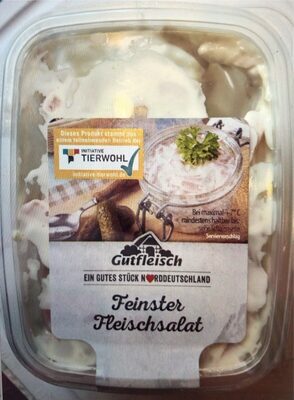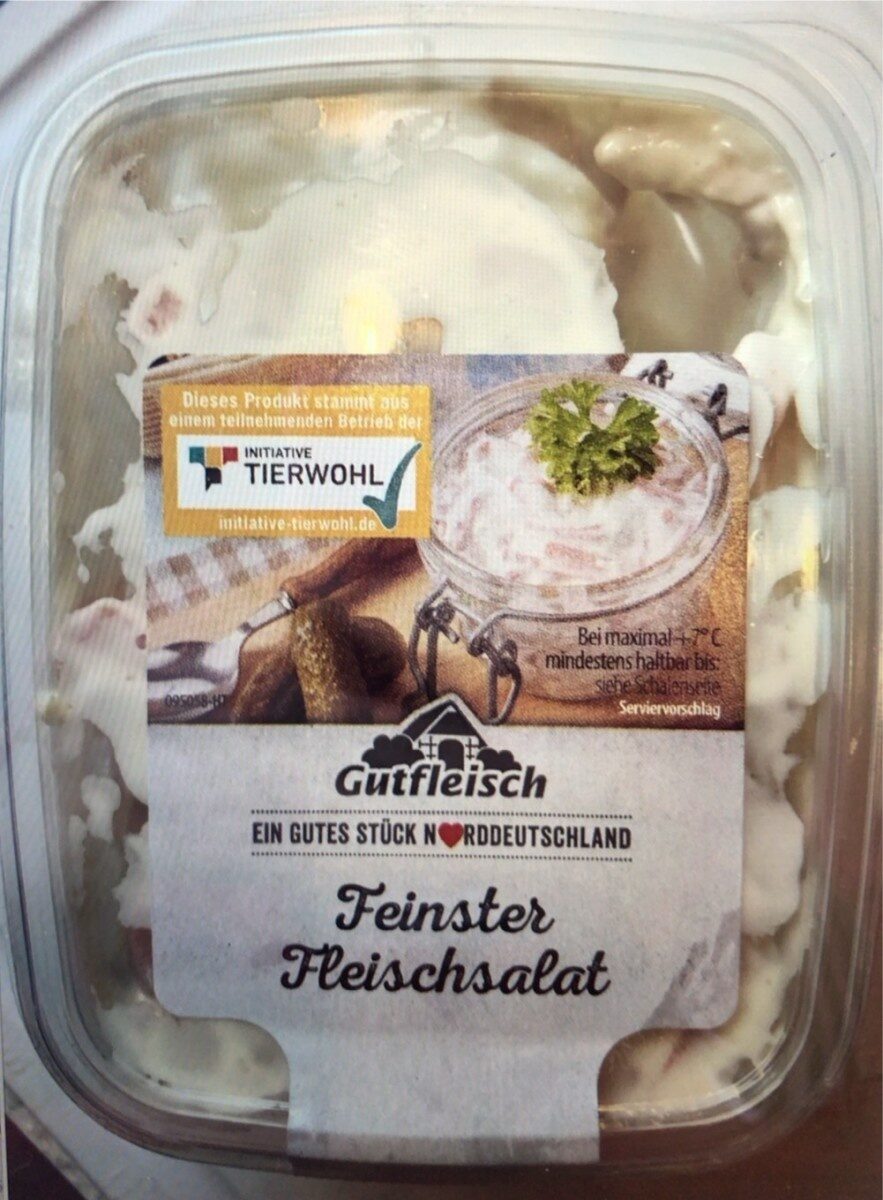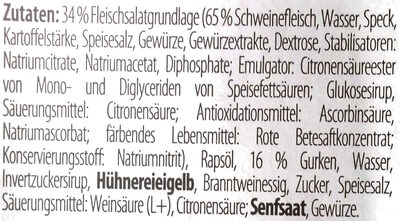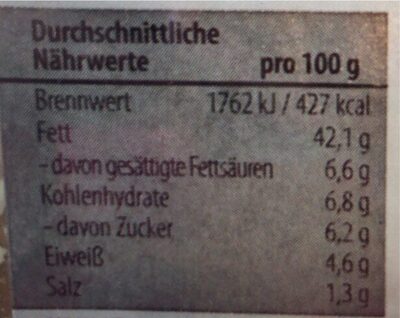Fleischsalat - Gutfleisch - 200g
This product page is not complete. You can help to complete it by editing it and adding more data from the photos we have, or by taking more photos using the app for Android or iPhone/iPad. Thank you!
×
Barcode: 4045800773859 (EAN / EAN-13)
Quantity: 200g
Packaging: Plastic
Brands: Gutfleisch, Popp
Categories: Meats and their products, Spreads, Meals, Meat preparations, Meats, Prepared salads, Meat spreads, de:Fleischsalat, Salads
Labels, certifications, awards:
German Agricultural Society, Gold medal of the German Agricultural Society, 2018 Gold medal of the German Agricultural Society
Traceability code: DE SH EFB-066 EG
Countries where sold: Germany
Matching with your preferences
Environment
Packaging
Transportation
Report a problem
Data sources
Product added on by openfoodfacts-contributors
Last edit of product page on by prepperapp.
Product page also edited by kiliweb, packbot, raturina, roboto-app, rochus, yuka.sY2b0xO6T85zoF3NwEKvlh1MC9nCkm3LMwLWtUGm4tuJC4HJcOoi45LjK6s, yuka.sY2b0xO6T85zoF3NwEKvlhF2DuflpWOfCyzfsE-3xYaOK67JOvB56NPFGqo, yuka.sY2b0xO6T85zoF3NwEKvlnRXVYfOuS3nFxrtnEqCz-yvLay0W8BA_NaiYqo.










